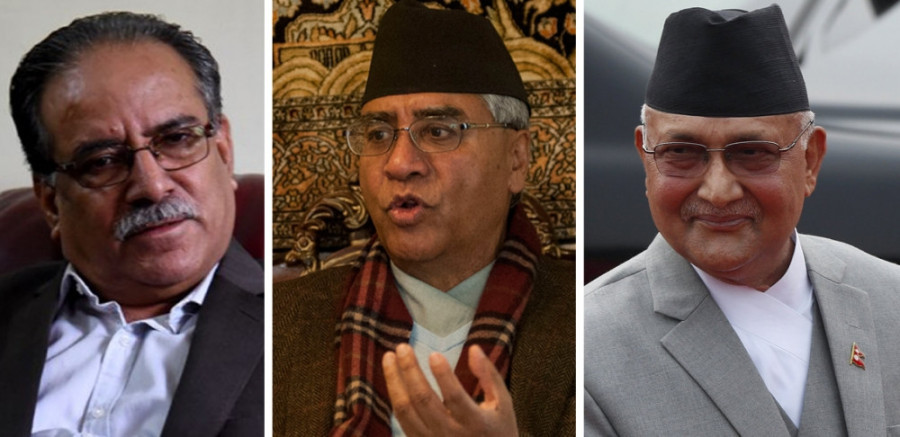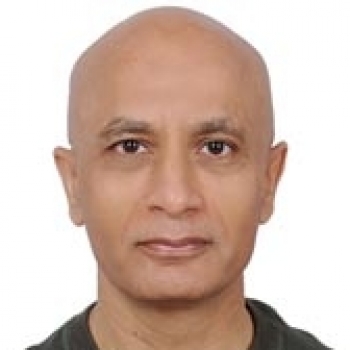Columns
Misuse of alliances in political power-lust
To be fair to Dahal, changing colour is a common trait among most Nepali politicians.
Paban Raj Pandey
The collapse early this month of a seven-party alliance, primarily made up of the Nepali Congress and the Maoist Centre, reflects the deteriorating political culture in Nepal. It has only been 16 months since the general election in November 2022, and Prime Minister Pushpa Kamal Dahal, whose Maoist Centre is the third-largest party with 30 seats in the House of Representatives, has already changed alliances three times. He contested the election together with the Nepali Congress and other fringe parties, became prime minister with the CPN-UML’s blessing, and ditched that alliance within a few months to realign with the Nepali Congress, but only to now join hands with the UML.
It is probably not an exaggeration to say that Dahal changes his colour faster than a chameleon. To be fair to him, this is a common trait among most Nepali politicians, including the leaders of the two leading parties—Sher Bahadur Deuba of the Nepali Congress and KP Sharma Oli of the UML. Deuba, Oli and Dahal all preach differently as relates to issues pertaining to economic and societal goals, political philosophy, and what have you, but they share the same lust for power. The willingness to go to any length to grab and then cling on to power is no different. This is precisely what has stopped Deuba (77), Oli (72) and Dahal (69) from handing over the reins to new leadership and new ideas.
It was this lust for control and power that Oli reneged on a promise he made to Dahal. The communists, including the parties led by Oli and Dahal, fought the 2017 general election together and won nearly two-thirds of the 275 seats, with the Nepali Congress only managing 63. Oli became the prime minister but went back on his word to Dahal that the latter would lead the government in the latter half. Dahal, along with Madhav Kumar Nepal, who subsequently split from Oli to found the CPN (Unified Socialist), rebelled. Oli then dissolved Parliament twice—December 2020 and May 2021—and both were declared unconstitutional by the Supreme Court, inviting Deuba to lead the next government.
Deuba loses more than he gains
Deuba led from July 2021 to December 2022. In between fell the November 2022 general election, during which an electoral alliance comprised of five parties, including Deuba’s and Dahal’s, won 136 seats—just two short of the majority. It was safe to assume that they would form the next government. Then, greed took over. Both Deuba and Dahal wanted to lead the government first. Dahal, out of obvious fear that history might repeat itself, wanted to lead first. As the leading party with 89 seats (now 87), Deuba, on the other hand, thought he was more deserving. In the resulting showdown, Oli swooped in and held out an olive branch to Dahal, who accepted it, beginning his third stint at Singha Durbar.
Fast forward to 2024, and Oli again managed to sow the seeds of misunderstanding between Deuba and Dahal. Dahal felt betrayed by an unexpected loss in January of Maoist Champa Karki, the ruling coalition’s National Assembly candidate from Koshi Province. Also adding to the rift was Deuba’s reluctance to replace finance minister Prakash Sharan Mahat. Then there was the issue of the National Assembly speakership. Deuba wanted Krishna Prasad Sitaula to become the new chairperson; this would ensure a seat in the Constitutional Council. Dahal had other ideas. After jumping ship to the Oli camp, Dahal installed his brother Narayan Dahal in that position.
Hindsight is always 20/20, but it is now increasingly clear that Deuba is getting stiffed more than he is gaining through these alliances. Despite leading the third largest party, Dahal stood on the shoulders of Deuba’s leading Lower House seats to govern from December 2022. Wash, rinse, repeat! Now, he is doing the same using Oli’s 77 seats. Nepali Congress cadres/supporters are understandably frustrated. In the name of the electoral alliance, the party is asking them to vote for ‘hammer and sickle’; this is particularly unfair to those who voted for ‘tree’ all their lives and are now being asked to do the unthinkable—vote for a philosophy that is miles apart from their own belief systems.
Opposition party’s important role
The 2015 Constitution of Nepal does not allow the president to appoint as the prime minister the parliamentary party leader of the party with the highest number of members in the Lower House; instead, a clear majority is needed. In the current political environment, alliances hence are practically guaranteed. Along with Dahal and Oli, the current alliance includes Nepal (10), Rabi Lamichhane’s Rastriya Swatantra Party (21), Upendra Yadav’s Janata Samajbadi Party (12) and four others with nine seats. It is always wise to ally with like-minded people.
Ideologically, Deuba’s party is probably closer to Lamichhane’s—or even the Rajendra Lingden-led Rastriya Prajatantra Party (14)—than the communists.
Even here, Deuba has been outsmarted by Oli, who has developed a better rapport with Lamichhane. Deuba’s failure to convince Nepal—an ally until recently—not to join the ruling coalition is a lesson hard learned. The risk Deuba and his party now face is a unified communist party. Be it Oli, Dahal or Nepal, minor differences aside, deep down, they are all cut from the same cloth. Besides, to fit into the capitalistic economic system, they have become a shadow of their former self—a diluted version. If the alliance survives until the next election, they can be a force to reckon with. In 2019, Oli and Dahal merged to form the Nepal Communist Party, which was dissolved in 2021 by the Supreme Court.
In 2008, the monarchy was abolished, and Nepal became a republic. The nation still hankers for political stability. Leaders are too individualistic and are solely focused on power and influence. Sure, it feels good to wield political power in the government and fulfil one’s agenda. But equally important is the time spent in opposition—a culture yet to develop in Nepal. This is when leaders have an opportunity to go to the grassroots and listen, laying the foundation for the next election cycle. This is what the Nepali Congress leadership should be doing. The general public’s distrust in government is high, and there is no shortage of issues to tap into. Done right, this can help open the way for voters’ hearts.




 11.12°C Kathmandu
11.12°C Kathmandu















